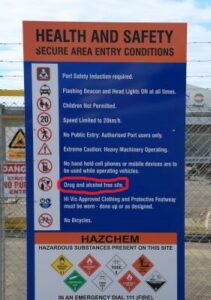
Screening and Monitoring Pro’s and Con’s
Urinalysis drug testing is a widely used method for screening individuals for drug use in Canada. This practice serves various purposes, from ensuring workplace safety to monitoring individuals on probation. In this blog post, we will explore the advantages and disadvantages of urinalysis drug testing in Canada, while also examining the governing bodies and regulations that oversee this practice.
Advantages of Urinalysis Drug Testing
Workplace Safety and Productivity
One of the primary advantages of urinalysis drug testing is its contribution to workplace safety and productivity. Many Canadian employers conduct drug testing as part of their workplace safety programs. Employees who are under the influence of drugs or alcohol are more likely to cause accidents and errors, which can jeopardize the safety of themselves and their coworkers. By identifying and addressing substance abuse issues through drug testing, employers can reduce the risk of workplace accidents and improve overall productivity.
Deterrence and Prevention
Urinalysis drug testing can serve as a powerful deterrent against drug use. Knowing that they could be subject to testing, employees and job applicants may be less inclined to use drugs. This deterrent effect can help create a drug-free work environment and minimize the societal costs associated with substance abuse, including healthcare expenses and lost productivity.
Compliance with Industry and Regulatory Standards
Various industries in Canada, such as transportation and healthcare, have strict regulations and standards related to drug testing. Urinalysis drug testing helps organizations ensure compliance with these standards, which is essential for maintaining public safety and upholding industry integrity. For example, in the transportation industry, drug testing is crucial to ensure that employees responsible for the safety of passengers are not impaired while on duty.
Probation and Rehabilitation Monitoring
In the criminal justice system, urinalysis drug testing is often used to monitor individuals on probation or parole. This ensures that those with a history of drug-related offenses remain drug-free as part of their rehabilitation and reintegration into society. Monitoring helps identify potential relapses, allowing for timely intervention and support.
Objectivity and Consistency
Urinalysis drug testing provides an objective and consistent means of assessing drug use. Unlike other methods that rely on behavioral cues or subjective judgments, drug testing relies on scientific analysis, reducing the likelihood of biases or inaccuracies.
Disadvantages of Urinalysis Drug Testing
Privacy Concerns
One of the main disadvantages of urinalysis drug testing is the potential invasion of privacy. Some individuals argue that such testing infringes on their personal rights, particularly when conducted without reasonable suspicion or consent. Privacy concerns have led to legal challenges in Canada and discussions regarding the need for a balance between public safety and individual rights.
False Positives and Negatives
Urinalysis drug testing is not infallible, and false positives and negatives can occur. False positives can result from medications or dietary supplements that trigger a positive test result, while false negatives may arise due to variations in drug metabolisms. Such inaccuracies can lead to unwarranted consequences for individuals, including job loss or legal repercussions. It is essential to ensure that all tests are handled by qualified professionals and sent to accredited labs for results.
Cost and Resource Intensiveness
Conducting urinalysis drug testing can be costly and resource-intensive. Employers, as well as law enforcement agencies, must allocate financial resources for the purchase of test kits, sample collection, laboratory analysis, and administrative procedures. This financial burden can be substantial, especially for smaller businesses or government agencies with limited budgets.
Stigmatization
Another disadvantage is the potential stigmatization of individuals who test positive for drug use. This can affect their professional and personal lives, creating barriers to rehabilitation and reintegration into society. Stigmatization may deter individuals from seeking help for their substance abuse problems.
Governing Bodies and Regulations
In Canada, urinalysis drug testing is subject to specific regulations and oversight by governing bodies. The key regulatory authorities include:
Canadian Human Rights Commission (CHRC): The CHRC enforces the Canadian Human Rights Act, which protects individuals from discrimination in employment based on certain grounds, including disability. Drug testing policies must comply with these regulations to avoid discrimination claims.
Canadian Centre for Occupational Health and Safety (CCOHS): CCOHS provides guidance and resources for workplace health and safety in Canada, including information on drug testing. Employers often refer to CCOHS guidelines when implementing drug testing programs to ensure compliance with safety regulations.
Transport Canada: In the transportation industry, Transport Canada has specific regulations for drug testing to ensure the safety of passengers and goods. These regulations apply to various transportation modes, including aviation, maritime, and rail.
Provincial and Territorial Laws: Each Canadian province and territory may have additional regulations and guidelines related to urinalysis drug testing. Employers and organizations must adhere to these regional laws in conjunction with federal regulations.
Urinalysis drug testing in Canada has both advantages and disadvantages. While it plays a crucial role in workplace safety, deterrence, and compliance with industry standards, it also raises privacy concerns, can produce inaccuracies, and stigmatize individuals. Understanding and adhering to the regulations set by governing bodies such as the CHRC, CCOHS, and Transport Canada is essential to strike a balance between protecting public safety and respecting individual rights. Ultimately, the decision to implement urinalysis drug testing should be made with careful consideration of the specific needs and goals of the organization or industry in question. If you are required to submit to urinalysis testing contact us today and we can help.




